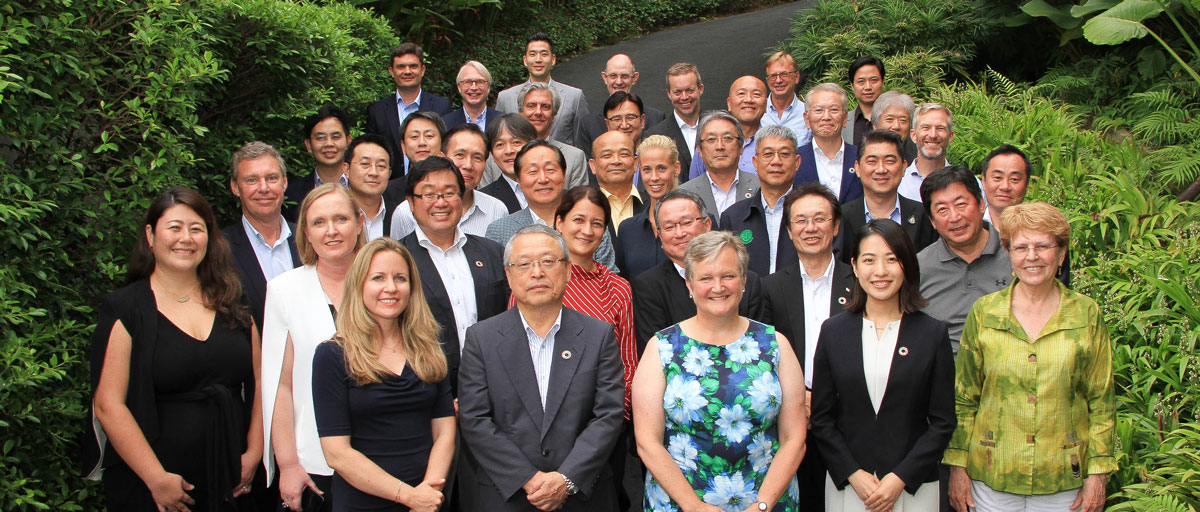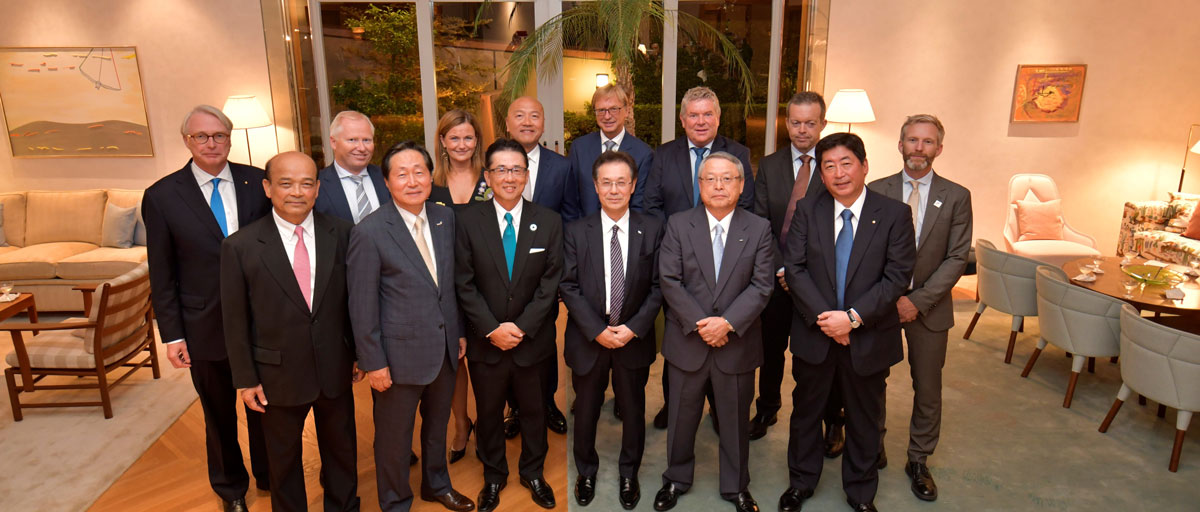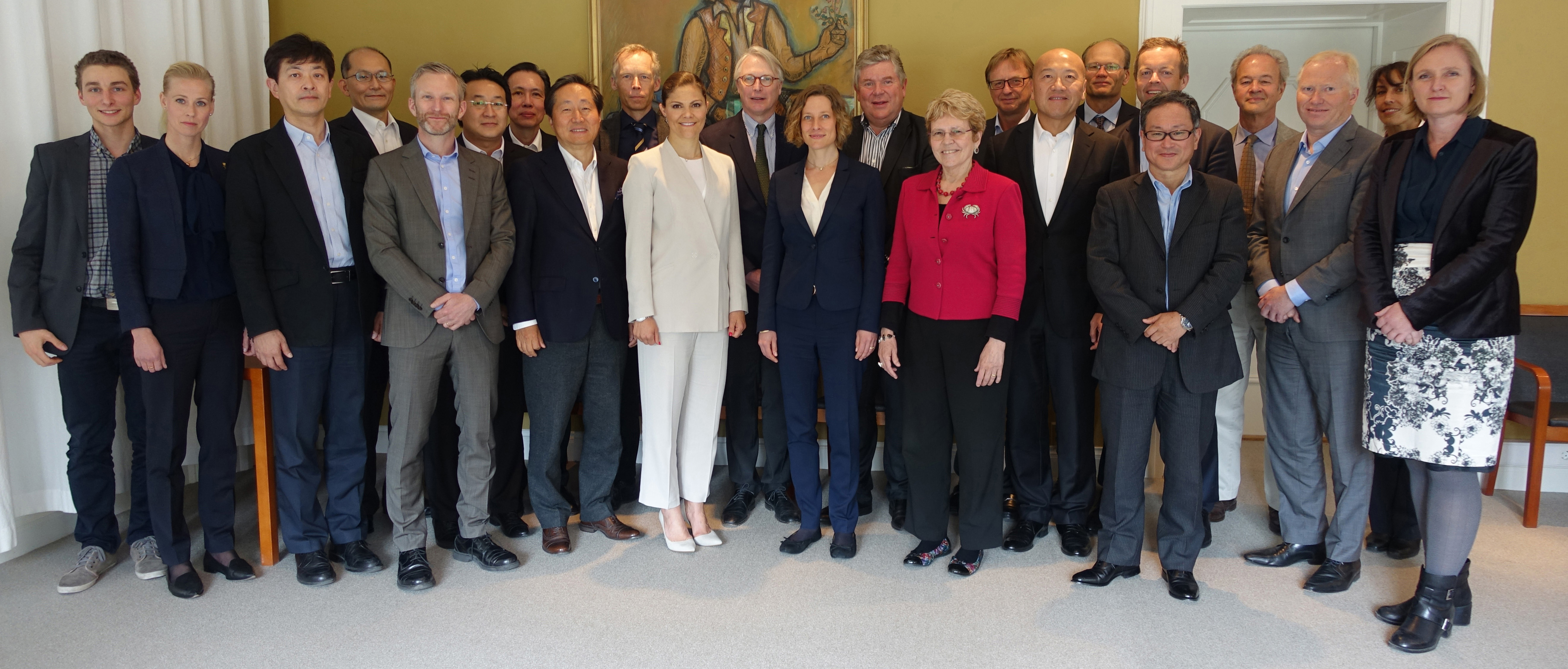
Participants of the fourth high-level meeting of the The Seafood Business for Ocean Stewardship (SeaBOS) initiative which took place in early September 2019, in Phuket, Thailand. Photo: Thai Union Group
Bildtext får vara max två rader text. Hela texten ska högerjusteras om den bara ska innehålla fotobyline! Photo: B. Christensen/Azote
OCEAN STEWARDSHIP
Continued progress towards healthier oceans
Report from fourth meeting between world’s largest seafood companies and their quest to turn their business sector more sustainable
- Fourth meeting between ten of the largest seafood companies in the world took place in Phuket, Thailand
- The meeting was described as increasing evidence of the benefits of collaboration between science and industry
- Among the key outcomes, SeaBOS established a new task force on Climate Resilience, to address the key impacts of climate change on the seafood industry
The Seafood Business for Ocean Stewardship (SeaBOS) initiative concluded early September its fourth high-level meeting since the start of SeaBOS in 2016. The initiative is the result of a series of dialogues between scientists from the Stockholm Resilience Centre, the Royal Academy of Sciences in Sweden and several of the largest seafood companies in the world.
Current member companies include the two largest companies by revenues (Maruha Nichiro Corporation and Nippon Suisan Kaisha, Ltd), two of the world’s largest tuna companies (Thai Union Group and Dongwon Industries), the two largest salmon farmers (Mowi and Cermaq – subsidiary of Mitsubishi Corporation), the two largest aquafeeds companies (Nutreco - owner of Skretting - and Cargill Aqua Nutrition), as well as the Japanese seafood products company Kyokuyo, and the agro-industrial conglomerate Charoen Pokphand Foods.
Inaugural Chair of SeaBOS, Shigeru Ito from Maruha Nichiro Corporation, described the fourth meeting, which took place in Phuket, Thailand, as increasing evidence of the benefits of collaboration between science and industry.
The initiative is designed to provide lasting change towards ensuring sustainable seafood production, as well as a healthy ocean. With our global population rising rapidly, the need to increase sustainable production of protein from our ocean becomes even more critical. This dialogue extended our efforts to address that challenge, and the benefits of having closer links between science and industry are becoming increasingly evident.
Inaugural Chair of SeaBOS, Shigeru Ito
Specific outcomes
Among the key outcomes, SeaBOS established a new task force on Climate Resilience, to address the key impacts of climate change on the seafood industry.
The ten SeaBOS members also agreed to connect with invited experts to advance actions on reducing IUU fishing, eliminating forced labour, enhancing seafood traceability, and reducing antibiotics. Members identified the importance of urgently improving regulations associated with sustainable fisheries and aquaculture management, ocean pollution (including plastics) and climate change.
A recently completed proof of concept study of traceability, organised and conducted by SeaBOS, illustrated important insights about how novel technologies can improve information flow in complex supply chains, and thereby reduce the risks associated with IUU fishing and labour abuse. The companies are now investigating how to take this to scale.
Rooted in solid science
Centre science director Henrik Österblom has been instrumental in not only establishing SeaBOS, but making sure it is built on best available science. Starting in 2012, Österblom, together with several other centre researchers and beyond, identified the largest corporations of the global seafood industry, and dubbed them “keystone actors” in marine ecosystems. This was inspired by the classical ecology study on “keystone species,” where keystone actors are thought to have a disproportionate influence on the structure and function of the ocean.
Based on this work, the researchers engaged with these powerful actors to develop a unique collaboration to address unsustainable practices such as overfishing, modern slavery, and destructive impacts on habitats and non-target species. The result was major companies from Asia, Europe, and North America forming the SeaBOS initiative.
Said Österblom: “We started discussing the “Keystone Actor” concept seven years ago, when we had no idea that the willingness to engage would be this substantial. The SeaBOS initiative has been made possible by a sincere interest in science among companies, and an openness to discuss new ways of enabling change. I am grateful to our funders, the flexibility of our academic institutions, and most of all, to the commitment and hard work by dedicated colleagues. What we have learnt along the way can likely also be applied to other sectors”
Professor Jane Lubchenco from Oregon State University and scientific advisor to the initiative, added that: “When I first began interacting with these companies in November 2016, several of them had never met. Now, they have a full agenda and a clear path forward. I sense an unusual bond of trust between individuals engaged in this initiative, amongst companies, and between science and business. This trust and obvious commitment to progress, provide an exciting foundation for something truly unique. I am excited about the prospects of this collaborative platform. In short, SeaBOS gives me hope for our ocean.”








